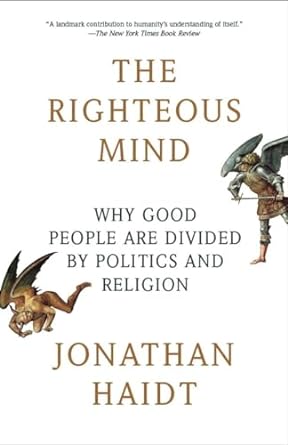when he examined human nature—in history, in political affairs, and among his fellow philosophers—he saw that “sentiment” (intuition) is the driving force of our moral lives, whereas reasoning is biased and impotent, fit primarily to be a servant of the passions.8 He also saw a diversity of virtues, and he rejected attempts by some of his contemporaries to reduce all of morality to a single virtue such as kindness, or to do away with virtues and replace them with a few moral laws.
Welcome back. Just a moment while we sign you in to your Goodreads account.


